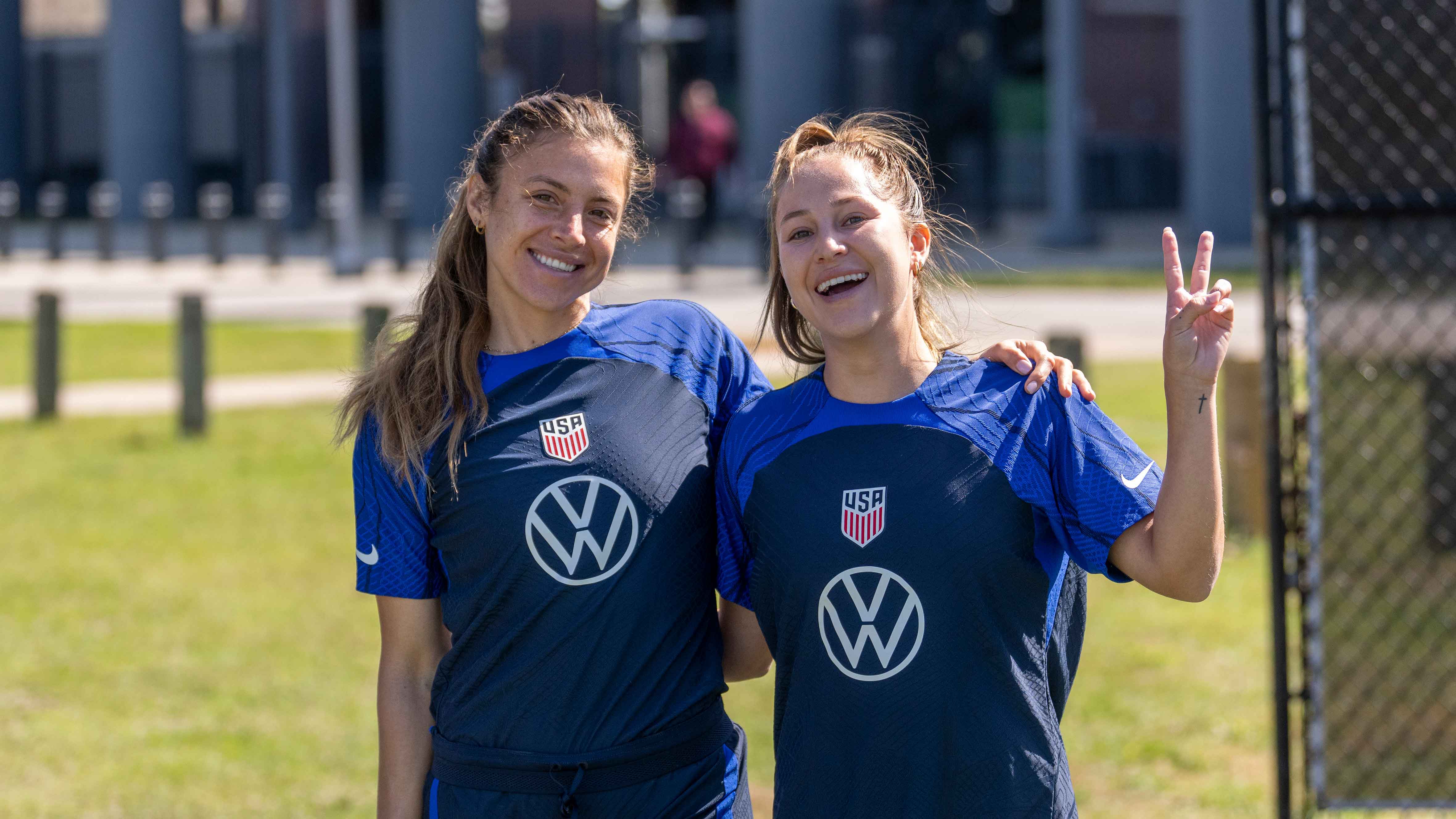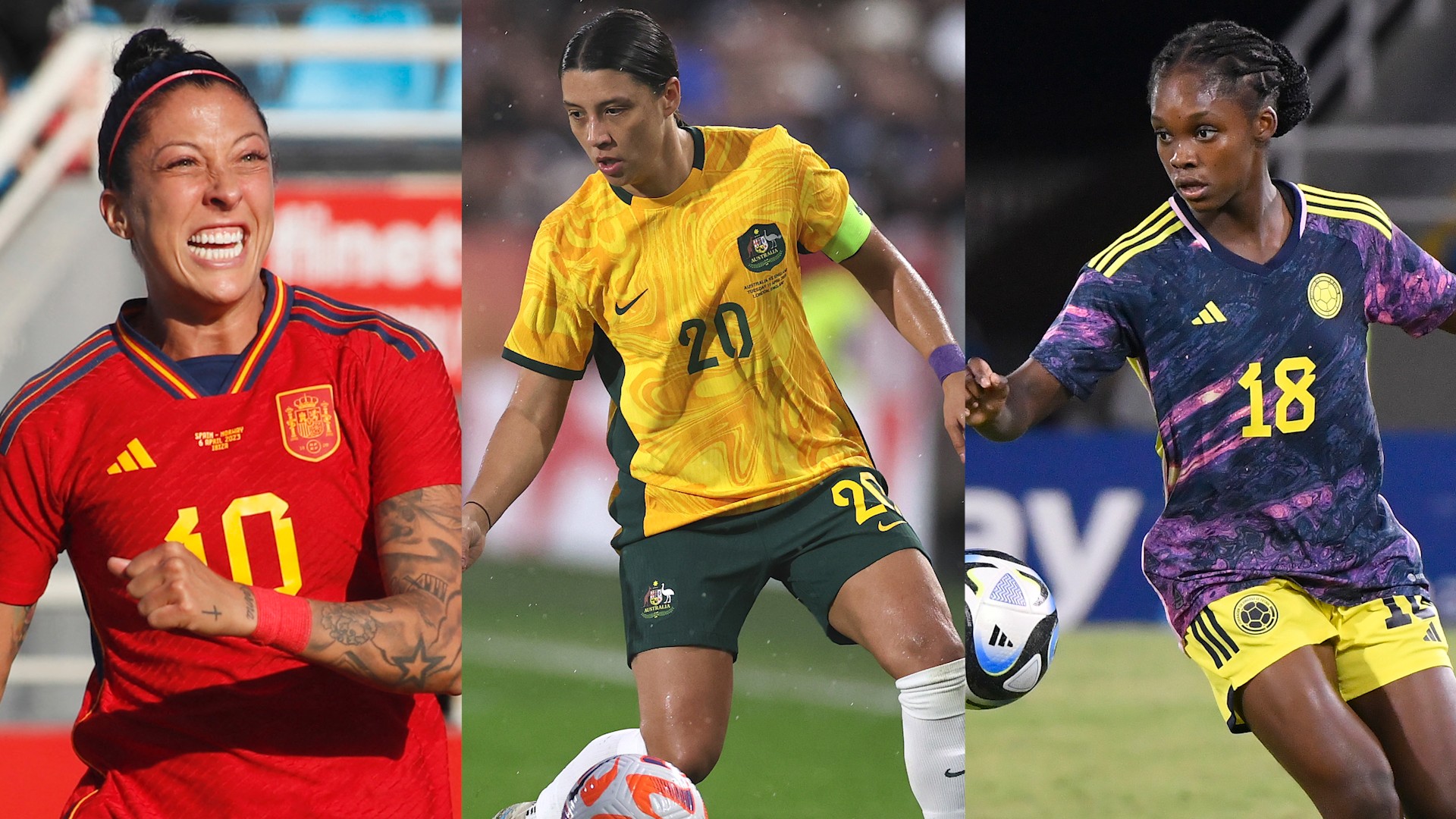Argentina soccer star Estefania Banini has been dubbed the “Female Messi.”
Banini, a 33-year-old forward for Spanish club Atletico Madrid, captained Argentina in the 2019 Women’s World Cup, which was the country’s first appearance since 2007. She then helped her country earn its first ever World Cup points with a pair of draws in the group stage.
With our All Access Daily newsletter, stay in the game with the latest updates on your beloved Boston sports teams!
But Banini’s push for gender equality in Argentine soccer led to arguably the country’s most popular female player going nearly three years without a single call-up to the national team.
In the wake of the 2019 World Cup, Banini was openly critical of Argentina’s coaching staff, training methods and resources, not feeling they were up to standard. Then-Argentina coach Carlos Borrello responded by leaving Banini and others who voiced their critiques off the club’s roster for the 2019 Pan American Games, prompting Banini to make her criticisms public in an Instagram post.
“We were punished by not being allowed to play for the national team for three years,” Banini said on NBC and Telemundo’s “My New Favorite Futbolista” podcast. “These were very hard times, very sad times, because all we wanted was to improve this branch, to have what we needed to really grow.”
The fight against gender inequality in soccer has been an ongoing battle in several countries around the world, and that includes Argentina.
After missing consecutive World Cups, the Argentina women’s national team was listed as “inactive” by FIFA in 2015 and didn’t have a head coach in 2016 as it lacked support from the Argentine Football Association. Shortly after the national team returned from a long hiatus without any games played, players went on strike in 2017 over unpaid stipends of $8.50 per training session and subpar facilities.
Things weren’t any better at the club level, either. In 2019, Macarena Sánchez sued her club, UAI Urquiza, and the AFA in an attempt to gain professional status, as women’s soccer was an amateur sport in Argentina. Players on UAI Urquiza, which featured several national team members, were not paid wages, only receiving a $10 monthly stipend for travel and being offered part-time roles within the club.
Just one month later, the AFA granted professional status to the Primera Division, the country’s top level of women’s soccer. The move required all 16 clubs in the first division to have at least eight players on professional contracts. Each team would be provided with $3,000 a month to split among the eight contracts for an average monthly salary of $375 per player, which is around the amount earned by players in Argentina’s fourth division of men’s soccer.
“The life of a soccer player in Argentina is complicated because athletes still can't dedicate themselves 100 percent to the profession,” Banini said. “There are some players who make a living, but that's not the reality, it's not what everyone can do. So it's difficult because a lot of girls have to study, they have to work and they have to do other things to be able to get to training with barely enough money or eating what they can.”
Banini, who played for the NWSL’s Washington Spirit from 2015-18, thinks Argentina can learn from the United States. She saw a women’s soccer infrastructure during her time in the U.S. that she believes other countries should copy.
“I think they are ahead of the game, by many years,” Banini said of the U.S. “Schools support soccer at a very professional level. The truth is that they give soccer an impressive value and it is something that we need to admire. And it’s not only soccer, it’s any sport. So I think it's something that they definitely have to do in Latin America.”
The United States has also eliminated the pay gap between its national teams. In February 2022, the U.S. women’s national team agreed to a $24 million settlement in an equal pay lawsuit against the U.S. Soccer Federation. Months later, the U.S. Soccer Federation, the USWNT and the USMNT struck a historic equal pay deal.
"It does seem very important to me that soccer teams start to do something about the gender wage gap,” Banini said. “And why not in South America as well? But I think there are other previous steps that other national teams and other countries had to do first.”
After Germán Portanova took over as Argentina’s head coach, Banini received her long-awaited call back up to the national team and officially made her return in April 2022. As she looks back, Banini believes her 2019 criticisms of the women’s national team had a positive effect.
“I always try to bring out the positive things and I think it worked,” she said. “It worked so that Argentina could have a change, and so that we can grow today under a new coaching staff.
As Banini has geared up for what will be her final World Cup in 2023, she’s witnessed some positive signs in the push toward gender equality. An attendance record for the women’s team was broken in April when nearly 32,000 fans showed up for a home friendly against Venezuela. And Banini says some players from the 2022 World Cup-winning men’s program have shown their support and started to get to know the women’s team.
Banini, however, cautions that Argentina remains far away from where it needs to be.
“I would love to be able to experience [gender equality] because it's my country and I want to live that reality,” she said. “But I think that there is still a long way to go before generating that opportunity for athletes – to be able to dedicate themselves 100 percent to soccer, so that the world can really see Argentina’s full potential.”


